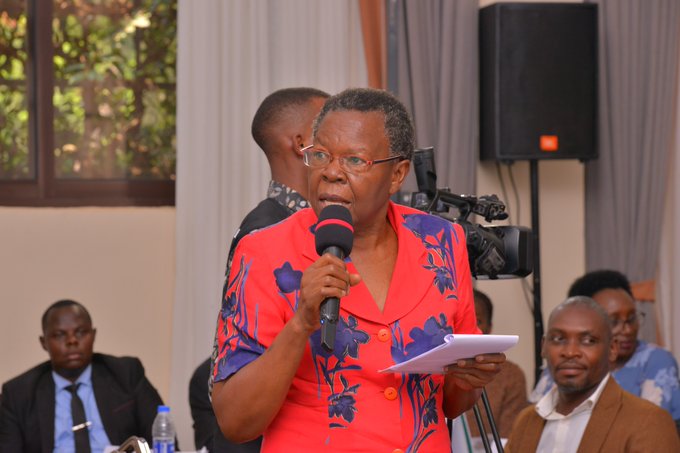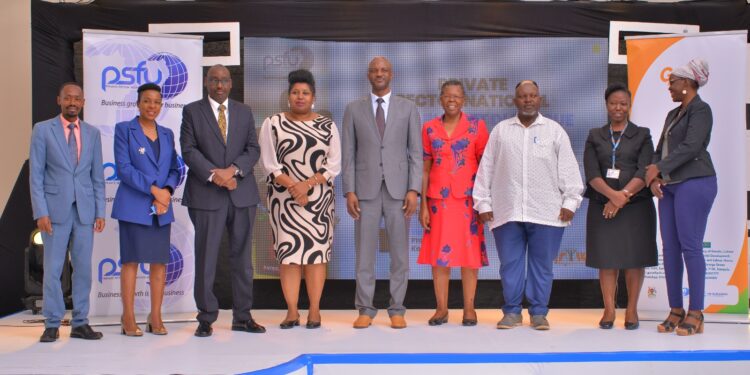Uganda’s 2025/26 National Budget is more people-centred than ever before, with the Parish Development Model (PDM) standing out as a flagship intervention for lifting households out of poverty, Permanent Secretary and Secretary to the Treasury Ramathan Ggoobi said on Monday.
Speaking as the Chief Guest at the Private Sector Foundation Uganda (PSFU) National Post-Budget Dialogue held at Protea Hotel in Kampala, Ggoobi defended the government’s shift in budget priorities, delivering development resources directly to rural populations at the parish level without the interference of middlemen.
“This is a budget for the people,” Ggoobi said. “The PDM is enabling us to identify real beneficiaries, send them funds directly, and track their investments in real time. We’re cutting out the leakage and empowering communities.”
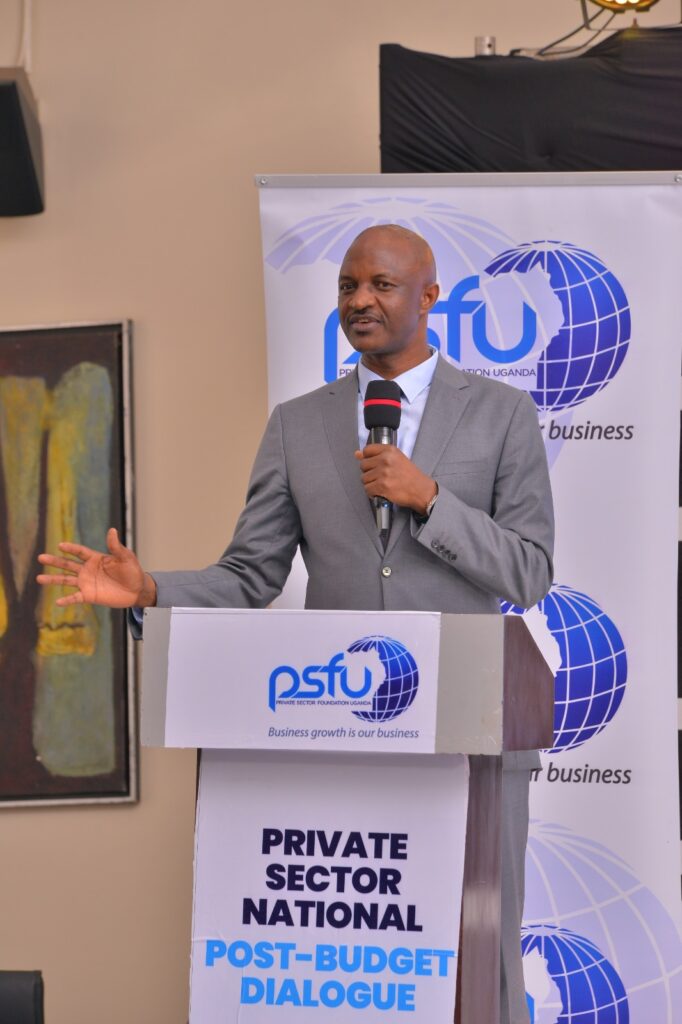
The PDM, now in its third year of implementation, is receiving over Shs 1 trillion in the current budget. The model supports parish-based enterprises with capital and technical assistance, aiming to transition 3.5 million households from subsistence to commercial production.
Ggoobi emphasised that in the first year, the ministry learned hard lessons about inefficiencies in fund disbursement. “We used to send money through layers of local governments, and it would leak along the way,” he said.
“The government is determined to eliminate wasteful intermediaries and ensure public resources reach those most in need. We’ve learned that when money is sent through multiple layers, it rarely reaches the intended beneficiaries. That’s why we now disburse funds directly from the Treasury to identified beneficiaries using digital systems.”
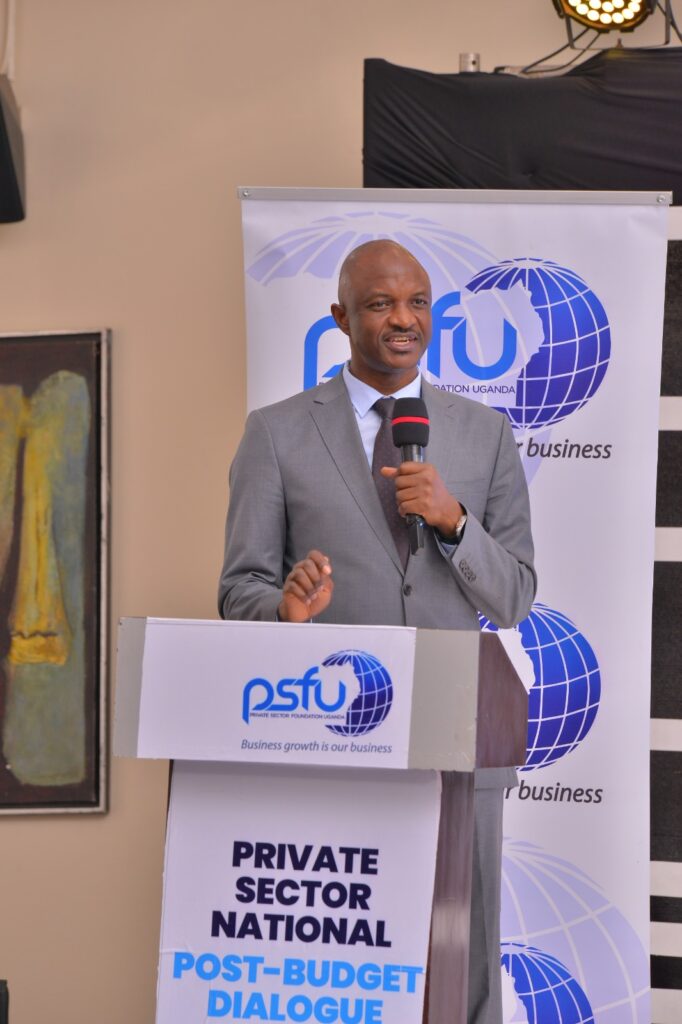
He showcased innovations like Wendi, a digital application tool used in e-payment of PDM funds and Parish Development Management Information System (PDMIS), a key tool for tracking beneficiaries – to verify beneficiaries, disburse funds, and track the use of money in agricultural enterprises such as poultry, coffee growing, and livestock rearing.
“Now we use digital systems to send the money directly from the Treasury to the identified beneficiary. This is the kind of visibility we’ve never had before,” Ggoobi said. “We know who got the money, where they live, and what they’re doing with it.”
The PSST also noted that the government is deliberately investing more in health, education, and social protection. “We used to spend Shs 11.4 trillion as our entire budget. That same amount now goes just into human capital – health, education, social protection and water,” he said, referring to the increased allocation for social services in the new budget.

According to Ggoobi, these pro-people investments are already yielding results. Uganda’s income inequality has reduced, with the Gini coefficient (a statistical measure of income or wealth inequality within a population, ranging from 0 to 1) dropping from 0.41 to 0.38 over four years – a significant shift that he attributed to grassroots economic programmes like PDM and Emyooga.
He urged critics to look beyond budget percentage tables and see the actual programmes changing lives on the ground. “You may not see a big figure under tourism or manufacturing in one line, but these sectors benefit through linked investments in roads, electricity, and digital infrastructure,” he said.
Call for Deeper Investment, Implementation, and Local Content
Key players in agriculture, tourism, minerals, and science and technology called for a more deliberate focus on implementation, increased access to affordable credit, and stronger support systems for farmers and small-scale enterprises, as they reflected on Uganda’s FY 2025/26 national budget.
During a panel discussion, experts expressed cautious optimism about the government’s direction but urged more targeted investment and systemic reforms to unlock real impact. “We have to commend the government for increasing the amount of money it is putting in the Uganda Development Bank, but it is still too little for those trying to set up serious factories,” said Allan Ssenyondwa.

He rallied for the revival of cooperatives, arguing they would help reduce the burden on farmers in acquiring quality seeds, fertilisers, and acaricides, and accessing markets.
Dr Theopista Ntale Sekitto of the Graça Machel Trust echoed the importance of credit access. “I am pleased with what the GROW project is doing to improve access to credit in Uganda, especially for women. However, the general cost of money in Uganda is still high, and the turnaround times are ridiculous,” she said.

Humphrey Asiimwe, CEO of the Uganda Chamber of Energy and Minerals, raised concerns about the lack of local community participation in the energy and minerals sectors.
“How can we get our communities to be involved in the energy and mineral projects as part of boosting local content? It means we have to walk the journey of formalising what they are doing and ensuring it is done sustainably,” he said.
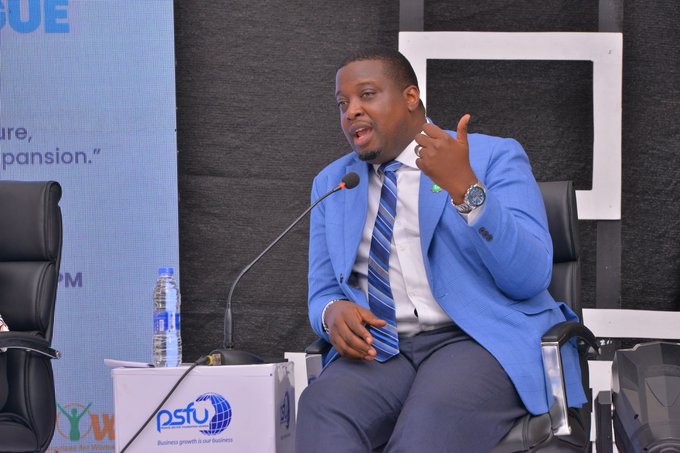
He also emphasised the need for focused exploration, stating: “If we want to benefit from the minerals of this country, we have to do some serious mapping. We have more than 50 minerals, but we need to focus on a few—like five—that we can package very well.”
Brenda Ssekabembe Mulema, CEO of Bake4Me Ltd., stressed the need for better implementation mechanisms while highlighting the potential of the agri-food sector in job creation and value addition.
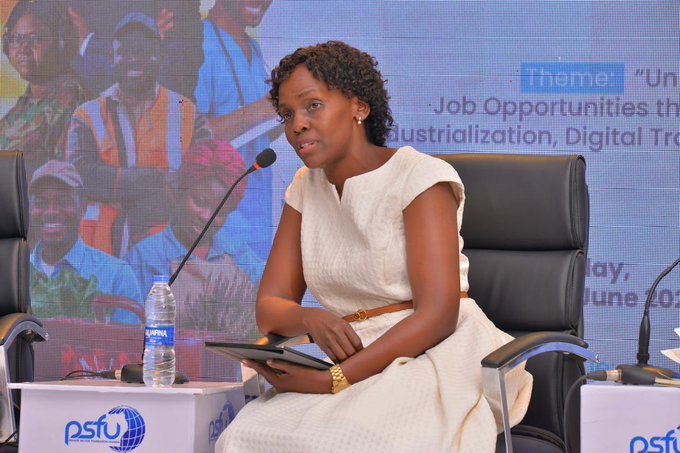
Hon. Victoria Ssekitoleko, a PSFU board member for Agriculture, called for a paradigm shift in how policy is understood and executed. “The word policy means enkola in Lusoga, so we need to stop saying that policies are good but the implementation is not. A good policy is one that is also well implemented. Both have to be good,” she said.
The dialogue was hosted at Protea Hotel Kampala under the theme: “Unlocking Investment and Job Opportunities through Commercial Agriculture, Industrialisation, Digital Transformation, and Market Expansion.”
